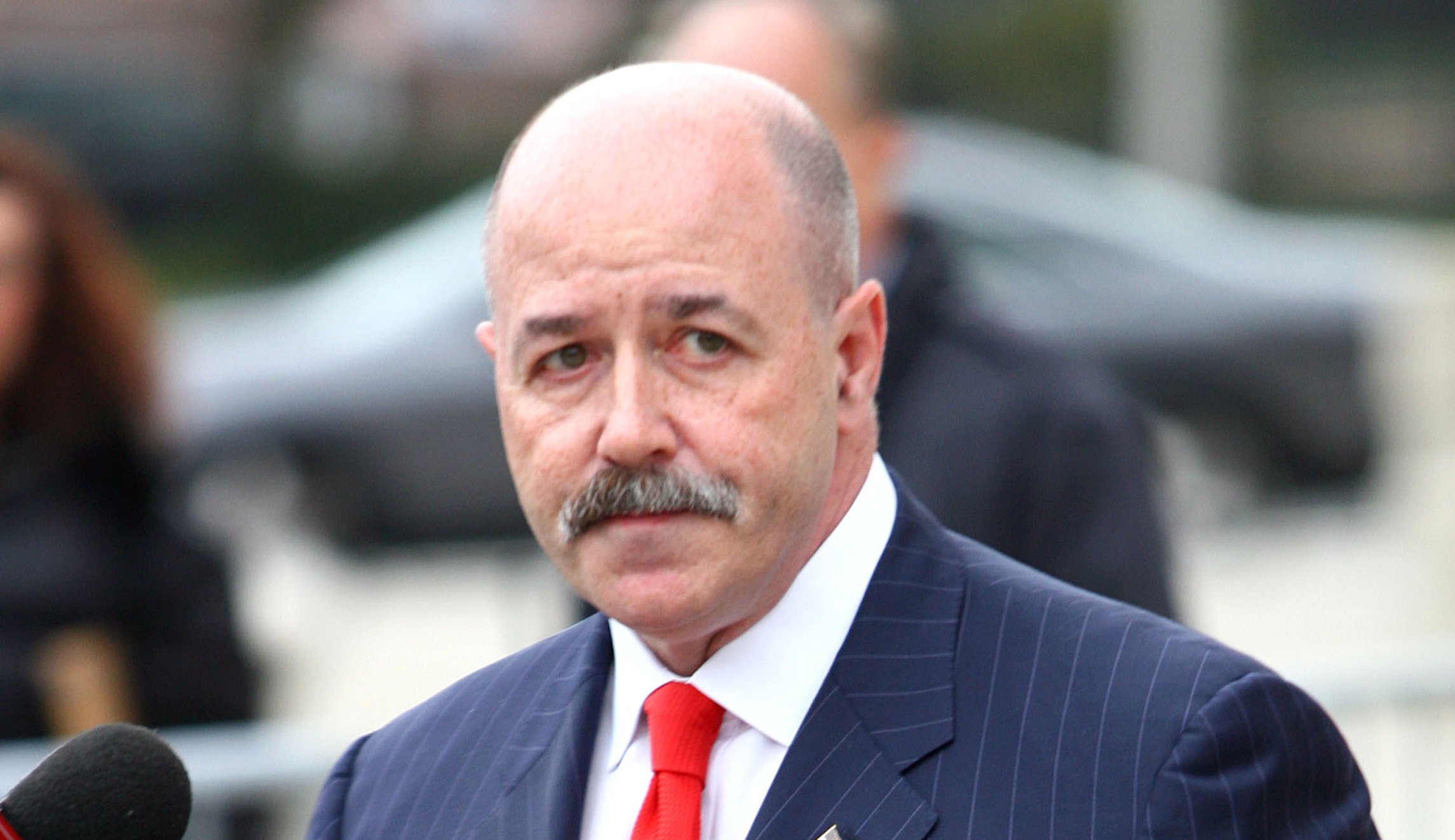From his rise to New York’s top cop, to President George W. Bush’s nominee to lead the Department of Homeland Security, to serving three years in a federal prison, Bernie Kerik’s life has been full of ups and downs. But determined to make the comeback stronger than the setback, the former New York City Police Commissioner is back, and with a new purpose.
The return of Kerik is impressive considering that from 2010 to 2013, he was a federal inmate at a minimum-security prison camp — a strange place to be for the former New York City Correction Commissioner. As commissioner, he oversaw tens of thousands of inmates across multiple facilities. As a federal inmate, he now had a different perspective. Prison is like “dying with your eyes open,” Kerik has said of life behind bars, a horrific experience.
As New York City’s Police Commissioner during the Sept. 11 attacks, Kerik, along with his colleagues at the Port Authority and the FDNY, and under Mayor Rudy Giuliani’s leadership, helped to coordinate the greatest rescue mission in the history of our country — 25,000 people were rescued that day from burning buildings and 1 million were safely evacuated from the city. But thousands of innocent lives were lost that day, including 23 of his officers.

When President George W. Bush nominated Kerik to lead the Department of Homeland Security, it seemed like a natural fit for the man known as “America’s Cop.” But the confirmation process proved difficult for Kerik, and not long afterwards, he withdrew his nomination.
The personal attacks and prosecution of Kerik leading up to and following his withdrawal to lead Homeland Security never made any sense. Convicted of making false statements and tax charges related to his children’s nanny, and unrelated apartment renovations would land him four years in prison as a nonviolent, first-time offender. As a 30-year public servant who survived a stabbing, gun battles, and the most substantial terror attack in world history, Kerik had dedicated his entire life to fighting crimes, not committing them.
Following his release from prison, Kerik published a book, From Jailer to Jailed: My Journey from Corrections and Police Commissioner to Inmate #84888-054. He’s also become a national voice on criminal justice reform. In an op-ed published in 2015, two years after his release, Kerik wrote that “draconian sentences” were “creating a permanent American underclass of society that is costing the American taxpayers billions of dollars.”
But he hasn’t stopped there. He continues to be a voice to the voiceless, and he’s not afraid of taking on a corrupt justice system and calling out overzealous prosecutors when necessary. In 2017, he began working with the White House on criminal justice and prison reform legislation, and last December, was invited to the Oval Office to join President Trump when he signed the First Step Act into law.
Just recently, while leveraging his passion as a criminal justice reform advocate and his deep expertise in law enforcement, Kerik became an advisor to U.S. Navy Special Warfare Chief Edward Gallagher and his family, reshuffling their legal team and serving as a strategist and investigator.
In a case that made international headlines, Gallagher had been accused of war crimes in the death of an ISIS fighter in Iraq. To make matters worse, he was being held in pretrial confinement. This case and Gallagher’s unnecessary confinement even caught the attention of Trump, who tweeted that Gallagher would soon be moved to a “less restrictive confinement” as he awaited trial.
The government prosecution of Gallagher was infested with prosecutorial misconduct, which included Navy prosecutors suppressing exculpatory evidence, and spying on Gallagher’s defense attorneys without a warrant. When the government’s star witness took the stand and confessed to murdering the ISIS fighter, the government’s entire case began to implode. Gallagher was ultimately found not guilty of murder. The government already knew that, but rather than dismiss the case against him, they chose to prosecute and terrorize an innocent man and his family.
There are many people that deserve credit in this case, especially Trump, the lead defense attorneys, Timothy Parlatore and Marc Mukasey, who Kerik labeled a “Legal Dream Team,” but you cannot discount the insight and impact of Kerik’s presence and expertise had on this case. His tireless efforts behind the scenes were critical in ensuring that Gallagher had a legal defense team that wasn’t afraid to take on the most substantial war-crimes case in U.S. Navy history. As a result, Gallagher is a free man.
Comebacks can definitely be better than setbacks, and Bernie Kerik is living proof.
Mark Vargas (@MarkAVargas) is a tech entrepreneur, political adviser, criminal justice reform advocate and contributor to the Washington Examiner’s Beltway Confidential blog.

